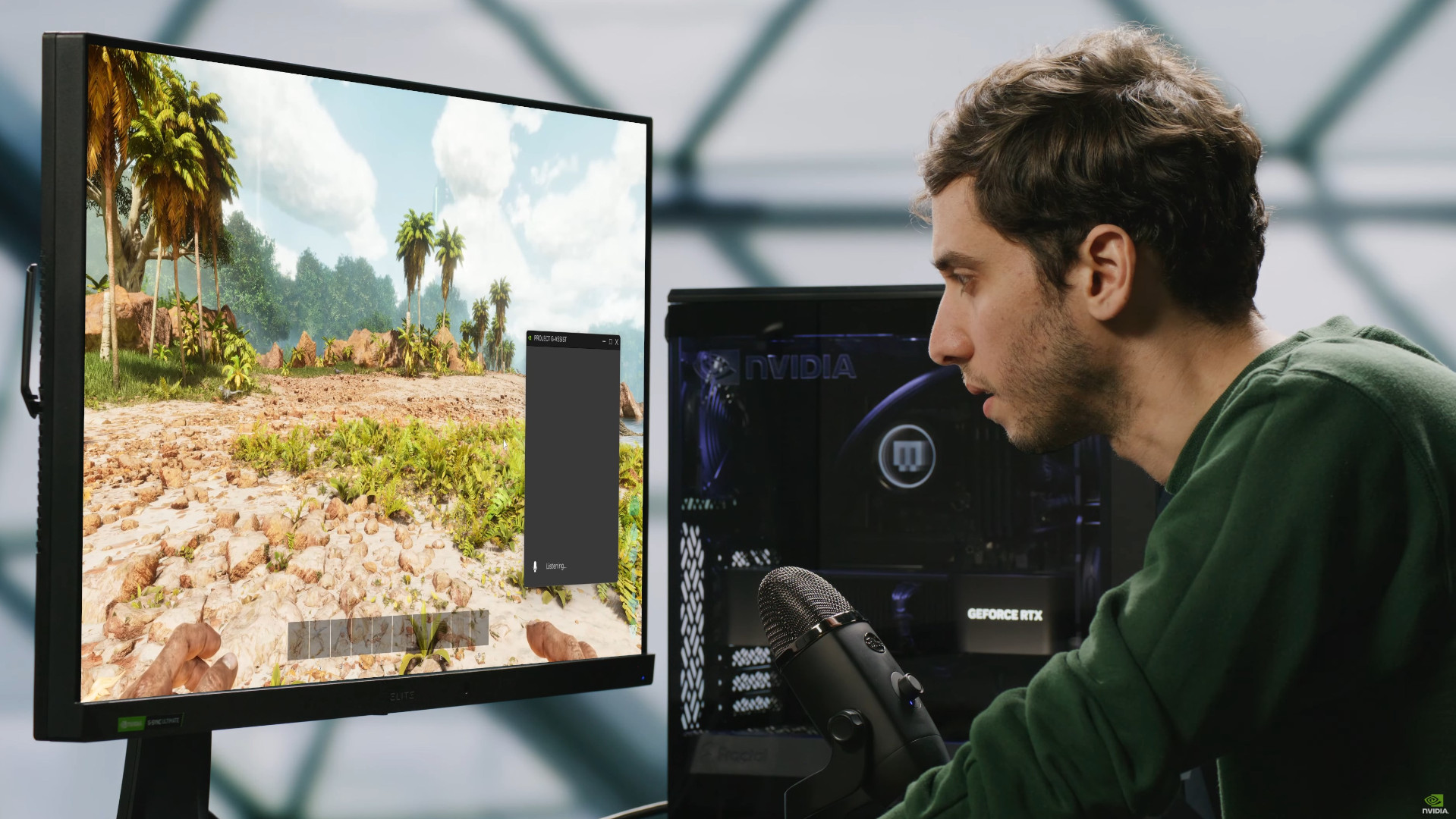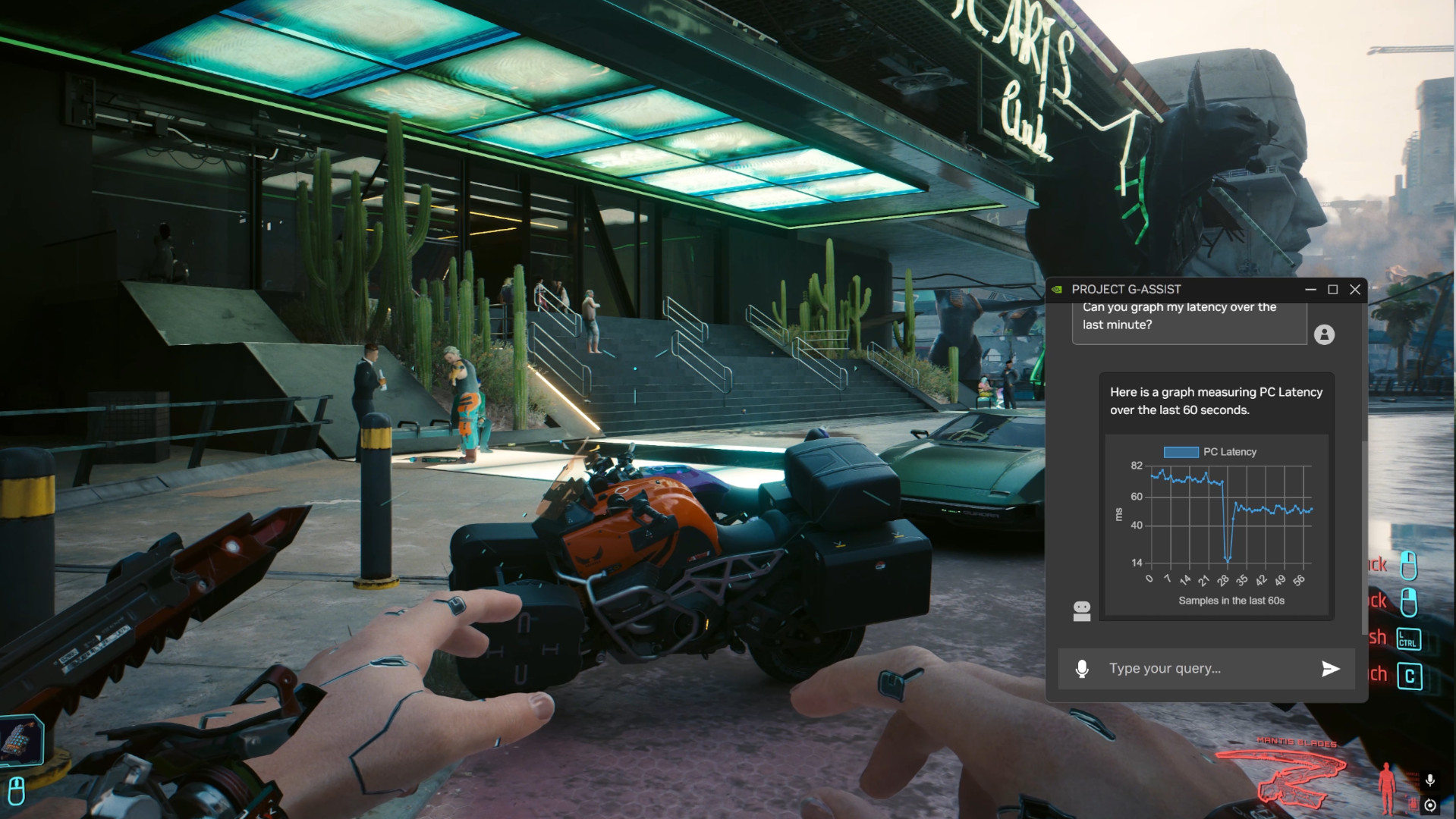Nvidia's new G-Assist AI could just be the best party member for hardcore PC gamers
It can optimize your computer for best gaming experience

What started as an April Fool’s prank from 2017 might actually become real tech. During Computex 2024, Nvidia revealed a tech demo for Project G-Assist, an AI assistant that can enhance how people play video games.
The old joke was that the AI could play games for you with the push of a button. This new version isn’t as capable as its fantasy counterpart, but can still help you with your playthrough. According to the announcement post, G-Assist can answer questions about how to complete quests, find items, or help with how to beat tough bosses.
To activate the AI, you'll simply press a hotkey or utter a wake phase. A window will appear on the screen. From there, you can type in a text prompt or speak it via microphone.
Nvidia states that G-Assist is contextually aware. Through visual models, it can provide recommendations on what a player should do next just by looking at the screen. It may suggest crafting a certain gear for your character or avoiding an on-screen enemy. The information it’ll provide depends on what you’re playing. For role-playing games, it can tell you about the lore of the surrounding world. If you’re playing a first-person shooter, G-Assist will recommend the best loadouts.

Granted, all the AI's tidbits can be admittedly found through a simple Google search. It’s not like G-Assist has access to a secret treasure trove of knowledge. The main draw here is you don’t have to leave your game. A ton of important data is all a button press away.
The source of a game’s information has us curious. Nvidia says each output will provide “context-sensitive links,” directing you to extra resources online, such as official community wikis. Whether or not that’ll include unofficial sources, like YouTube videos, remains to be seen.
Computer tune up
Besides the playthrough helper, the assistant also has a feature we think hardcore gamers will appreciate called Performance Tuning. Activating this allows the AI to “evaluate your system’s configuration… and instantly tune it for an optimal experience.” It could, for example, decide to undervolt a graphics card to increase power efficiency, enable a “safe GPU overclock,” and turn on Nvidia Reflex to reduce latency, among other things.
Get daily insight, inspiration and deals in your inbox
Sign up for breaking news, reviews, opinion, top tech deals, and more.

G-Assist even tracks your computer’s performance as you play, letting you know about key statistics, from a game's current frame rate to latency spikes. The corner window displays a graphical readout of a certain stat within a certain time frame. It depends on what you ask the assistant.
What’s more, the AI suggests actions you can take to improve a computer's overall performance or explain certain features. For instance, DLAA (deep-learning anti-aliasing) and DLSS (deep-learning super sampling) are a pair of graphical software that Nvidia made to improve a video game's visual fidelity. The average person may have a difficult time understanding the differences between them and what exactly they do. G-Assist can help down break tricky concepts to better educate people.
The AI is shaping itself up to be yet another killer app from Nvidia. It’s definitely something we want to try out ourselves on our favorite titles. At time of this writing, G-Assist is being exhibited at Computex. It’s unknown if and when it’ll launch or if there will be beta at some point.
TechRadar did reach out to Nvidia asking if it plans to release a public beta and if it’ll expand to non-gaming apps soon. We’ll update this story if we hear back.
Be sure to check out TechRadar's list of the best gaming PCs for 2024 if you're in the market.
You might also like

Cesar Cadenas has been writing about the tech industry for several years now specializing in consumer electronics, entertainment devices, Windows, and the gaming industry. But he’s also passionate about smartphones, GPUs, and cybersecurity.
